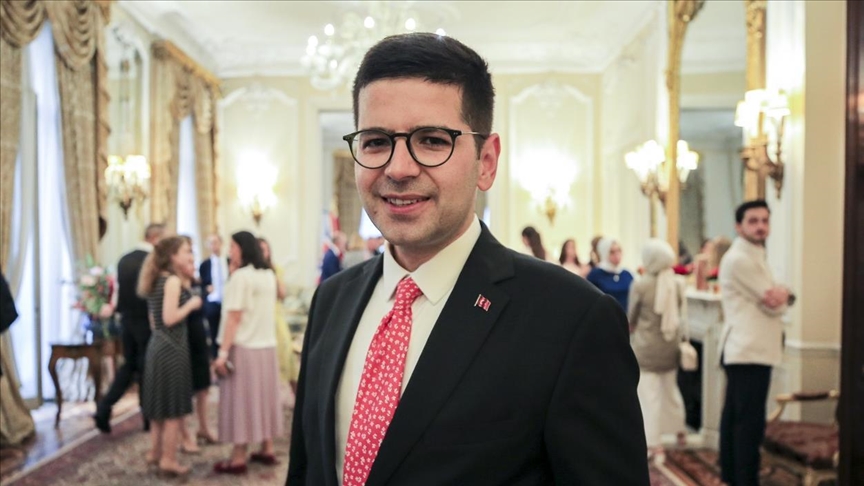LONDON
Türkiye is already a prime hub for foreign investments and will further strengthen its position in the coming years, according to Burak Daglioglu, head of the Turkish Presidency’s Investment Office.
With a strong commitment to reforms and concerted efforts to create an investor-friendly environment, Türkiye will build on its successes of the past two decades, he told Anadolu in an interview in London.
He said there is growing interest from international investors after the recent elections, placing the country in a position where it can surpass previous inflow records.
Following his reelection, President Recep Tayyip Erdogan has refreshed his financial team, bringing in prominent figures such as Mehmet Simsek, the new finance minister, and Hafize Gaye Erkan, the first woman to lead the country’s Central Bank.
The government is also pursuing reforms to improve regulatory frameworks, streamline bureaucratic processes and enhance transparency.
“Our current share in global investments is around 1% and our goal is to increase this to 1.5%,” said Daglioglu.
“Looking at data for the first four months of this year, we are talking about an investment of nearly $4 billion. Personally, I prefer a more long-term analysis, and the figure for the past 12 months has exceeded $14 billion.”
He said Türkiye’s geographical location as a gateway between Asia, Europe and Africa is a major advantage, along with the extensive human resource talent pool in the country.
Another key factor is Türkiye’s position in the global green energy sector, according to Daglioglu.
Apart from transitioning its own energy production to renewable and green sources, Türkiye has also become a critical equipment producer in the worldwide supply chain, he explained.
“Türkiye features in any discussion about green energy equipment around the world,” he said.
Economic relations with UK
Regarding the UK, Daglioglu said the two countries have longstanding trade and investment ties.
“The trade volume between the two nations, valued at approximately $19 billion, shows our existing economic cooperation,” he said.
“Since 2003, Türkiye has received over $250 billion in foreign direct investment, with around $13.5 billion coming from British investment companies. Additionally, there are approximately 3,200 UK-based companies operating in Türkiye.”
Investments from the UK are spread in diverse sectors and have made a significant impact, he added.
Financial investments and venture capital flows in technology are particularly important areas, while manufacturing, with a particular focus on telecommunications and energy, also offers promising opportunities for UK-based companies in Türkiye, according to Daglioglu.
“We think that the UK’s strong industrial background and its status as a financial center in its region will contribute to our country. In technology entrepreneurship, we can gain significant investments and obtain important financing from the UK in terms of the supply chain,” he said.
“We also see that investors recognize the increasing importance of the green economy in Türkiye, and the UK stands out as one of the leading countries providing financing for these projects,” he added.
Daglioglu cited recent examples, including a credit agreement for UK financing for a high-speed electric rail line between the Turkish capital Ankara and the western port of Izmir, as evidence of rising interest and support from international investors for Türkiye’s sustainability efforts.

